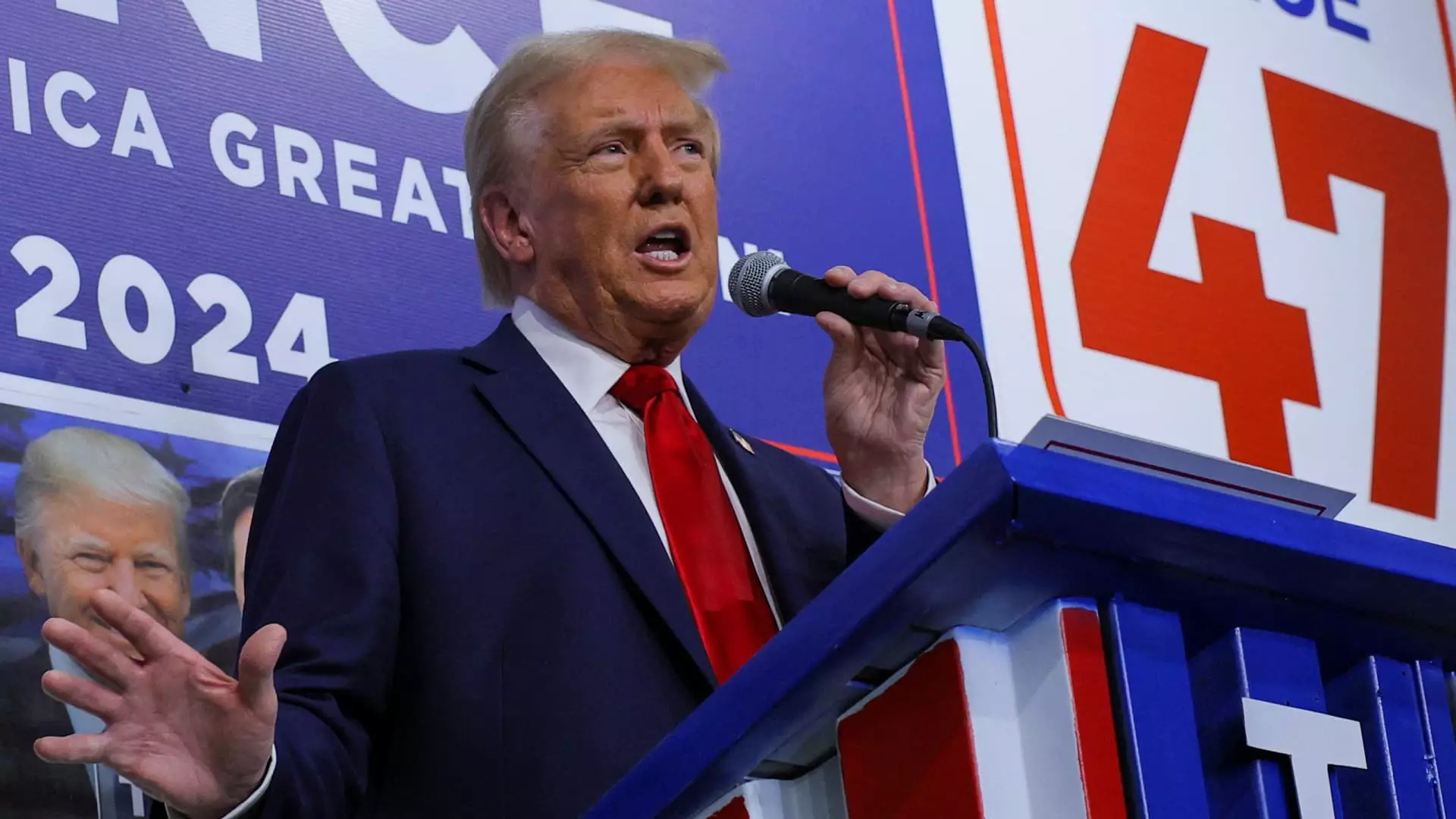A significant recent NBC News poll has unveiled a striking trend among American voters regarding trade policies—particularly universal tariffs. Conducted from October 4 to October 8, the survey revealed that a whopping 44% of respondents were decidedly less inclined to support a political candidate endorsing high tariffs on imports. This figure juxtaposes sharply with the 35% who expressed a greater likelihood of backing a candidate with a pro-tariff stance, leaving only 19% indifferent to the issue. With a margin of error of 3.1 percentage points, these findings paint a clear picture: the idea of across-the-board tariffs garners skepticism among a considerable portion of the electorate.
This public sentiment poses challenges for candidates like former President Donald Trump, who has made universal tariffs a central element of his economic platform. The ongoing backlash against such policies may raise questions as to whether Trump’s approach resonates with broader economic realities and voter priorities, particularly as the nation grapples with existing financial pressures.
Trump’s rationale for imposing sweeping tariffs is twofold: first, he posits that elevating tariffs will incentivize foreign companies to relocate their operations to the U.S. to avoid costs. In an interview with Bloomberg’s John Micklethwait, Trump emphasized his belief that setting high tariffs would compel businesses to manufacture domestically. Remarkably, he suggested a paradigm where tariffs could promote job growth by pushing companies to establish factories in the United States instead.
However, this theory is subjected to scrutiny. Economic experts caution that universally applied tariffs typically lead to increased prices for consumers. As importers bear the tax burden, they are likely to pass these costs onto their customers, ultimately leading to elevated consumer prices. Given that many American families are already navigating the aftermath of rising inflation, this potential consequence may further alienate voters who are concerned about their economic wellbeing.
Critics of Trump’s tariff approach, including some prominent Republican figures, voice strong opposition to this economic strategy. Senate Minority Leader Mitch McConnell has publicly proclaimed his disapproval of tariffs, arguing that they burdensome to consumers by driving up prices, a statement indicating a rift within the GOP regarding trade policy. This dissonance is particularly notable as the Republican party historically aligns itself with free-market principles.
The broader economic implications of Trump’s tariffs are complex. Many economists warn that such aggressive trade measures could reignite inflation, complicating an already delicate economic recovery. The concern is that as withholding imports becomes financially viable due to high tariffs, the resulting supply chain disruptions could exacerbate inflation, rather than alleviate it.
Democratic Critique and Policy Divergence
The Biden administration has been quick to critique Trump’s expansive tariff proposals, coining the phrase “Trump sales tax” to underline the repercussions of such policies. While the current administration has indeed maintained some of Trump’s original tariffs, particularly on Chinese imports, it espouses a more strategic and targeted approach. Treasury Secretary Janet Yellen underscored this distinction, suggesting that the Biden administration seeks to focus tariffs on specific sectors deemed vital to the U.S. economy, rather than adopting a one-size-fits-all policy.
The Biden-Harris strategy emphasizes careful consideration of where tariffs can best serve national interests, as opposed to Trump’s broader plan. This tactical differentiation not only underscores differing philosophies on trade but also amplifies the growing divide between the two parties concerning economic management strategies.
As the debate over tariffs continues, the divergence in policies and public sentiment reveals much about the current political landscape. With considerable opposition to universal tariffs from voters and members of Trump’s own party, candidates must reckon with the economic ramifications and public perceptions inherent in their proposals. While high tariffs may remain a point of contention, the necessity for coherent trade policies that prioritize consumer interests and economic stability is ever more pressing. As the discourse evolves, it will be crucial for politicians to take heed of the electorate’s priorities to navigate the complex economic terrain ahead.


Leave a Reply